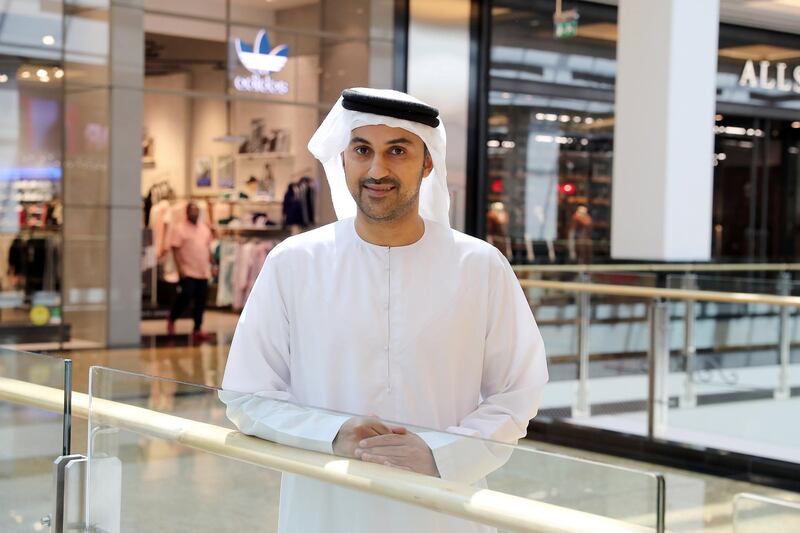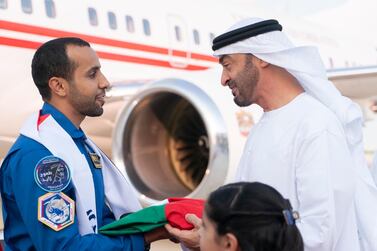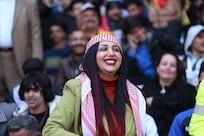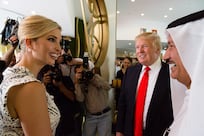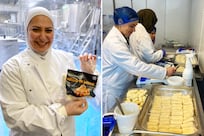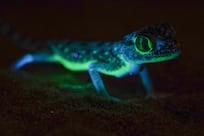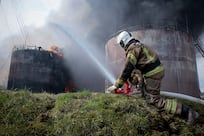The UAE’s space exploration programme has sparked a sharp rise in demand to learn Russian, language schools in the Emirates have claimed.
Officials at a number of leading institutes across the country reported a “notable” increase in enrolment figures over recent years.
Speaking Russian is a key requirement for all astronauts travelling to the International Space Station (ISS) on the Russian-built Soyuz spacecraft.
Anecdotal evidence now suggests aspiring UAE cosmonauts are signing up to language courses in an effort to boost their prospects in the space sector.
“When the astronaut programme was first launched in 2017, we had a spike in interest from people looking to grasp the language,” said Maxim Mineev, executive director of the Headway Institute, a language school in Dubai.
“Two Emirati clients who enrolled in our course were actually part of the application process to become the UAE’s first astronaut.”
Last month, the UAE made history by sending the first UAE astronaut into space to conduct a series of experiments on board the ISS.
Major Hazza Al Mansouri, 35, returned safely to earth following eight days alongside colleagues from the United States and Russia.
Astronauts visiting ISS are now required to speak, read and write in Russian, in part because the control systems of the Soyuz are written in the language.
The shuttles are also commanded by Russian citizens, and take off from a launch site in Kazakhstan, part of the former USSR.
Speaking to The National on Sunday, Ahmed Al Ali, a 36-year-old pilot, said he had been one of the candidates in line to become the UAE's first astronaut.
He succeeded in making it to the last 20, but lost out to Maj Al Mansouri in the final stages of the application process.
After attending a workshop at the Mohammed bin Rashid Space Centre as part of the programme, Mr Ali was told successful candidates had to learn Russian. Days later, in late summer 2017, he enrolled at the Headway Institute.
“I’ve been taking Russian lessons for about two years now, usually for about three hours a week,” he said.
“I’m still struggling with it, especially the verb system, but I’m almost at the intermediate stage.
“My country has given Emiratis the chance to dream big so I will keep learning the language if it helps my chances of getting to space next time. As a pilot, it is my ultimate goal to reach space.”
The Headway Institute currently has about 400 students enrolled in its Russian courses, including 300 school pupils. Of the 100 adults enrolled, the majority are male and from the MENA region.
On Tuesday, Russian President Vladimir Putin will land in the UAE on his first official trip to the country since 2007.
The visit is seen as a sign of the growing relations between the two countries. In July 2018, the UAE granted Russian tourists a free 30-day visa-on-arrival, a move which was reciprocated by Russian authorities in February this year.
Tudor Totoescu, a manager at the Eton Institute’s language centres in Dubai and Abu Dhabi, also said interest in Russian courses were growing in popularity.
He said the spike was due in part to the UAE’s recent space programme as well as government entities such as Dubai Police enrolling their staff in Russian classes ahead of Expo 2020, in anticipation of high numbers of Russian tourists.
“We went up from 350 Russian learners in 2017 to a little over 380 in 2018,” he said.
“Now we are in October 2019 and we've already counted upwards of 600, so there is a notable increase.
“Adding to this, Hazza Al Mansouri's recent space endeavor has sparked an interest in the Russian language for many people, particularly UAE nationals.”
Meanwhile, the Pomegranate Institute in Dubai said it had introduced additional Russian classes to its timetable earlier this month.
Officials also suggested the "upcoming Expo 2020 and the UAE’s space exploration efforts" were likely adding to demand.
“People are becoming more interested in the Russian culture because we are hearing about it a lot on the news here,” a spokesman for the institute said.
“UAE government workers may need to know the language for business interactions too.”
On average, language centres said most students required 90 to 120 hours of lessons to learn conversational Russian, while advanced level learners needed upwards of 360 hours.
